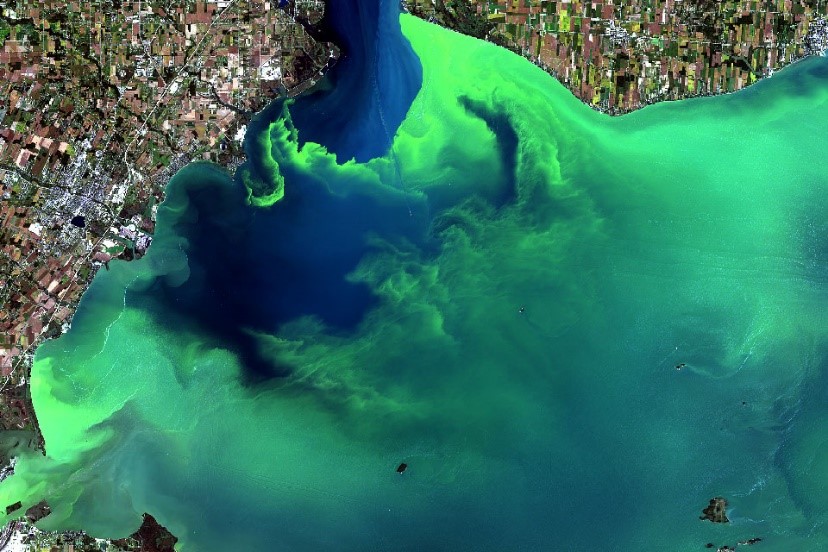
Stopping Shipping Pollution: Ammonia and Algal Blooms
- Excessive nutrients from untreated sewage can cause harmful algal blooms with adverse impacts on economies, communities, and marine environments
- Switching out heavy fuel oil for ammonia and autonomous geospatial technology can help ships curb air pollution and emissions
Earlier this year, a commercial cargo ship was sunken with 21,000 tonnes of fertiliser on board. The large nutrient load could trigger major algal blooms resulting in dead zones that prevent light from penetrating the water’s surface. Not only was this a huge quantity of fertilisers, but the ship sank in relatively shallow waters home to rich coral life.

Photo source: National Oceanic and Atmospheric Administration (NOAA)
Over the last three decades, close to 10,000 algal blooms have been reported around the world. Algal blooms can cause biological and economic damage to the ocean and coastal environments. Shipping activities exacerbate nutrient pollution by discharging untreated wastewater directly into the sea. Enhancing the availability of port facilities and environmental equipment to treat and collect waste can help to pave the way to eliminating pollution.
Aside from waste discharge, pollutants could be released into the air and water during ammonia refueling. Ammonia is one of the fuels poised to replace heavy fuel oil (HFO) widely used in the shipping industry. While the energy transition from HFO to ammonia could curb air pollution and greenhouse gas emissions, expected improvements in technology and safety standards can minimise leakages. Emerging technology such as autonomous geolocation solutions can also help ships avoid sensitive areas or locations with discharge restrictions and improve fuel efficiency.
Singapore is gearing up for ammonia bunkering – both for shore-to-ship and ship-to-ship fuel supply. This could accelerate progress towards deploying greener marine fuels and allow the shipping sector to achieve net-zero GHG emissions by or around 2050 in line with the landmark strategy adopted by the International Maritime Organization in 2023.
At PCM, our environmental analysis enables us to identify and support companies that are fronting the energy transition. We encourage the adoption of low-carbon fuels by companies with transition plans and timebound commitments for a net-zero transition. Our ESG Research Objectives are key in helping to draw out the business value of companies. This is how we reinforce actions contributing to a low-carbon economy.
Important Information
This material is provided by Phillip Capital Management (S) Ltd (“PCM”) for general information only and does not constitute a recommendation, an offer to sell, or a solicitation of any offer to invest in any of the exchange-traded fund (“ETF”) or the unit trust (“Products”) mentioned herein. It does not have any regard to your specific investment objectives, financial situation and any of your particular needs.
The information provided herein may be obtained or compiled from public and/or third party sources that PCM has no reason to believe are unreliable. Any opinion or view herein is an expression of belief of the individual author or the indicated source (as applicable) only. PCM makes no representation or warranty that such information is accurate, complete, verified or should be relied upon as such. The information does not constitute, and should not be used as a substitute for tax, legal or investment advice.
The information herein are not for any person in any jurisdiction or country where such distribution or availability for use would contravene any applicable law or regulation or would subject PCM to any registration or licensing requirement in such jurisdiction or country. The Products is not offered to U.S. Persons. PhillipCapital Group of Companies, including PCM, their affiliates and/or their officers, directors and/or employees may own or have positions in the Products. This advertisement has not been reviewed by the Monetary Authority of Singapore.
